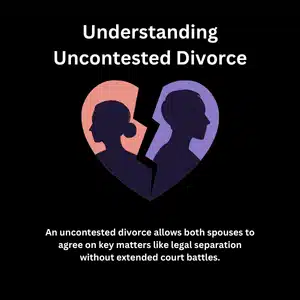Understanding the difference between annulment in Montana and divorce is essential when concerned about status. An annulment treats the marriage contract as void, often due to fraud, lack of consent, force, or prohibited marriages involving a prior marriage or first cousins.
Divorce ends a valid marriage, resolving financial assets, child support, custody, and visitation. Under Montana law, one spouse, husband or wife, files a petition in court. Judge orders vary based on different grounds. Find links, contact a lawyer, and decide which process suits your life.
What Is a Divorce in Montana?

A divorce in Montana legally ends a valid marriage contract and changes both parties from married to single status. Once there’s a court order, both the filing spouse and the other spouse lose all legal ties to the marriage. The proceedings under the law settles child support, financial assets, guardianship, and other legal matters involving children born during the marriage.
Unlike annulment in Montana, divorce doesn’t require proof of fraud, force, sexual intercourse, or prohibited marriages. One spouse must reside in Montana for 90 days before petitioning the district court. Bozeman residents can find links related to resources, forms, and legal separation guidance under the statute on annulment.
If parties agree, the marriage may be granted as uncontested. But when annulment applies—like lack of consent due to age, marriage to first cousins, or a prior marriage—a judge decides if the marriage annulled with the other spouse qualifies and issues a declaration of invalidity. Contacting a lawyer ensures every step follows jurisdiction and law.
What Is an Annulment in Montana?
An annulment in Montana law treats the marriage contract as never legally valid, unlike divorce, which ends a lawful marriage. When a judge orders an annulment, the marriage is annulled, altering marital status and legal rights. This affects outcomes related to child support, guardianship, and custody for children born during the marriage, especially when both parties are legally recognized as spouse and parent.
Montana law requires specific grounds for annulment in Montana, including prohibited marriages like a previous marriage still in effect or first cousins married. Other valid reasons include underage marriage without parent or guardian consent, force, fraud, mental incapacity, physical incapacity, or being under the influence of alcohol or drugs at the time of consent. The court considers these related factors closely and evaluates whether both parties had the legal capacity to enter the union.
For example, a spouse discovering their wife or husband is already married may qualify. A person married without proper consent related to age, being under the influence of alcohol, drugs, or related incapacity may also qualify. Contacting a lawyer helps parties file the appropriate petition, understand the statute, and determine if the court has jurisdiction. Montana resources are available to help any concerned spouse through this process and ensure every legal requirement is met.
Annulment vs Divorce: Key Differences

The most important difference between annulment and divorce is how the court views the marriage contract. Divorce acknowledges the marriage was legally valid, then ends it through a court order. Annulment in Montana declares the marriage was never legally valid from the start, resulting in a declaration of invalidity that treats the marriage as if it never happened.
Under Montana law, divorce requires only that one spouse claim irreconcilable differences. Annulment, on the other hand, demands proof of specific legal grounds like fraud, force, physical incapacity, underage marriage, or a previous marriage still in effect. These prohibited marriages or consent issues must have existed at the time of the marriage.
Unlike divorce, annulment actions must often be filed within a specific timeframe—typically one to two years after discovering the condition that made the marriage invalid. This makes timing a critical factor for those seeking to have a marriage annulled.
Annulments usually require more work related to evidence gathering and appearances in court. That means higher expenses compared to uncontested divorce cases where parties agree on child support, guardianship, and financial assets. The process is more complex and harder to obtain than other options.
Is Annulment Cheaper Than Divorce in Montana?
The short answer is usually not. While annulment in Montana may seem simpler, it often costs more than divorce. To have a marriage annulled, one spouse must prove grounds existed at the time of the marriage contract—such as fraud, force, underage age, lack of consent, mental incapacity, physical incapacity, a previous marriage, or a prohibited marriage. This requires evidence, court appearances, and an attorney familiar with the law.
Unlike divorce, which only needs both parties to agree on cases involving children, annulments involve presenting a case to court and securing a court order declaring a declaration of invalidity. That level of complexity means more attorney fees and related expenses. A parent seeking an annulment must also be ready to address guardianship and support, even if the marriage is declared invalid.
In contrast, an uncontested divorce is often less expensive. If both spouses settle, the case can proceed with fewer resources. But even if a judge orders the marriage invalid, cases concerned with children under age of consent still require the court to resolve more issues, adding time and cost. If a parent files for an annulment, these steps still apply.
Montana also recognizes prohibited marriage cases, such as between first cousins or already married individuals. These can lead to automatic annulment, but proving the relationship qualifies as a prohibited marriage requires documentation. Whether a spouse is seeking to be declared never legally married, or a parent wants clarity, annulment involves more steps than many parties expect.
Understanding Uncontested Divorce in Montana

An uncontested divorce allows both spouses to agree on key matters like legal separation without extended court battles. When parties settle, they file with the district court along with a complete marriage divorce agreement. Because fewer hearings are needed, expenses stay lower, which appeals to many parties and spouses in Montana, including Bozeman residents facing a busy family court system.
The court encourages resolution outside the courtroom, especially when children born from the marriage are involved. This reduces disruption and stress during an already difficult life transition. While uncontested divorce is simpler than a marriage annulment, legal guidance is still valuable. An attorney ensures your agreement meets the law, preventing problems and helping the judge granted a court decree that accurately reflects your intentions.
Even when the spouses agree, professional help safeguards your rights and confirms that the marriage contract ends clearly and correctly. A person in a marriage may think an uncontested divorce is straightforward, but other details still require care. For example, if a parent agrees to shared guardianship, the agreement must still follow Montana family law.
While some people believe annulment is easier, a married person may find that divorce better suits their situation. Regardless of whether the marriage is ended by divorce or annulment, each spouse should understand their rights under Montana marriage law to avoid complications.
When Should You Choose an Annulment Over Divorce?
The choice between annulment in Montana and divorce depends. If one spouse entered a prior marriage without disclosing it, lacked proper consent due to being under the influence of drugs, alcohol, or mental incapacity, or committed fraud, a judge may grant a declaration of invalidity. Other factors like underage marriage or physical incapacity affecting sexual intercourse also support annulment. In Montana, the law allows a person in a marriage to file for annulment when conditions present at the time of being married make the union legally void or voidable.
However, the law treats child support, guardianship, and financial properties seriously even when a marriage is annulled. If a parent and spouse decide to separate, the court still determines what is in the child’s best interest. Whether you’re a mother, father, husband, or wife, issues don’t disappear just because the marriage is declared invalid. A lawyer can help each person and spouse understand their rights and how to move forward.
Religious annulments differ from civil processes and don’t replace the procedures. While annulment declares the marriage contract void, the process remains complex and doesn’t erase all responsibilities. Each guardian or parent involved must still comply with custody orders and financial support. Knowing the correct answer under the law helps you decide which path best protects your life, especially if, for example, age or mental capacity were in question at the time you were married.
How to Access Divorce Records in Montana

Montana divorce records are held by the district court where the marriage was legally ended. For Bozeman, that’s typically the Gallatin County District Court. Unlike some states, Montana law doesn’t allow online access to these records, so you must visit in person or send a mail request to the court with proper jurisdiction under the statute.
To find links to the correct petition and files, include names of both spouses, the court order date, and the case number if known. Some information may be sealed—especially in cases involving child support, guardianship, or children born during the marriage. If the parties were married under circumstances involving influence such as alcohol or drugs, or if an annulment was later granted, some records might also be restricted to protect the parent, guardian, or child.
Only certified copies from the court are valid for legal uses like name changes. A lawyer can help parties access these documents and explain what’s legally available based on your situation. For example, a wife needing proof of a dissolved marriage to update records must request certified documentation. If either spouse disputes the information or requests sealing, the court may limit public access. Contact the court directly or check official resources for up-to-date instructions on how parties can proceed.
What Happens After Divorce or Annulment?
Both annulment and divorce allow you to restore your maiden name. The court order from either annulment or divorce is proof for changing your name with related agencies and institutions. Once your marital status changes, you lose spouse rights like inheritance or medical authority but also avoid liability for your former spouse’s debts or related obligations.
If children were born in the marriage, the court still addresses custody and child support under Montana law, regardless of whether the case involves divorce or annulment. A parent may still have to handle related decisions and responsibilities. Legal separation is another option for couples not ready for divorce, annulment, or to end the married relationship, though it doesn’t terminate the marriage or free a person to remarry.
Before entering a new marriage, be sure your prior marriage is properly resolved through divorce or annulment. A lawyer can help a person understand the process, especially if fraud, underage marriage, or consent issues are involved. It’s wise to contact a lawyer for advice about related paperwork, court appearances, and obligations. If you’re unsure whether you qualify for annulment, contact a legal expert. A knowledgeable lawyer can explain options related to child guardianship, property, or spousal rights and help the person or parent move forward.
Moving Forward with Confidence
Understanding the difference between divorce and annulment in Montana helps you make informed choices. Whether you’re considering divorce or believe your marriage contract qualifies for annulment in Montana, knowing your legal options is key.
The Gallatin County District Court can provide forms and procedural guidance, but only an attorney can advise on whether your marriage should be dissolved or declared a declaration of invalidity. An experienced lawyer helps you evaluate grounds like fraud, force, physical incapacity, or a previous marriage involving one spouse. They also help navigate issues like child support, custody, visitation, and division of financial properties.
These cases affect your marital status, future rights, and responsibilities, especially if children were born during the marriage. Seeking legal advice ensures you understand Montana law and your responsibilities moving forward. Whether the goal is having your marriage annulled or pursuing divorce, legal guidance protects your interests and supports a smoother process.









